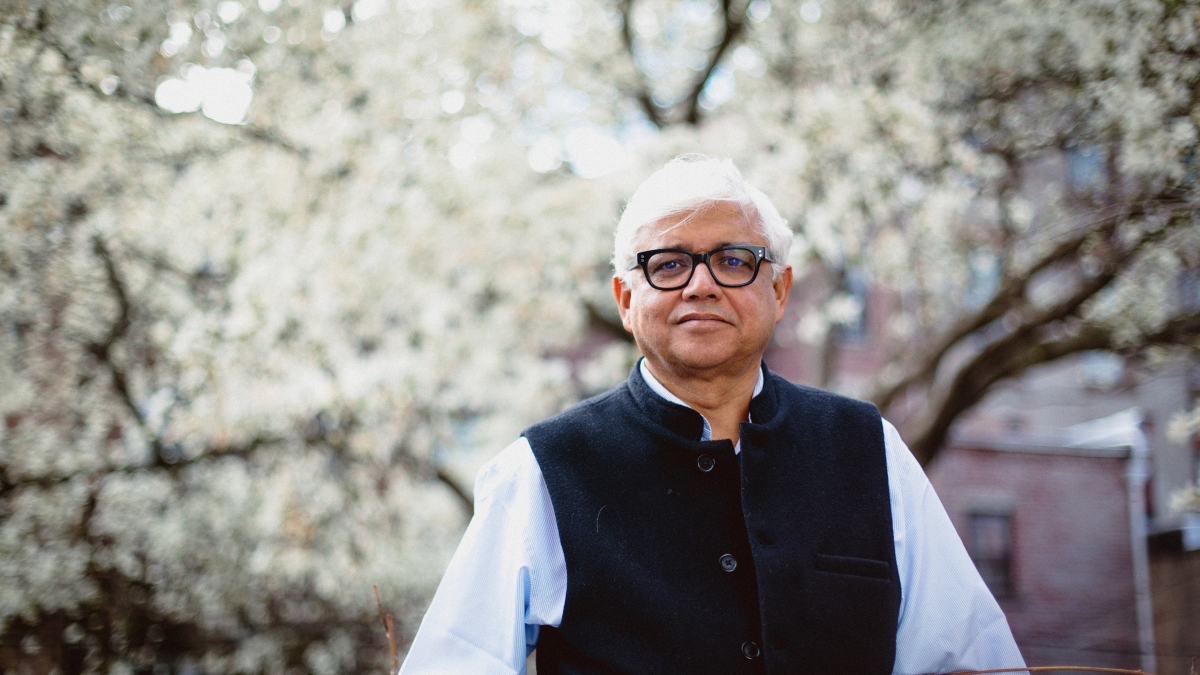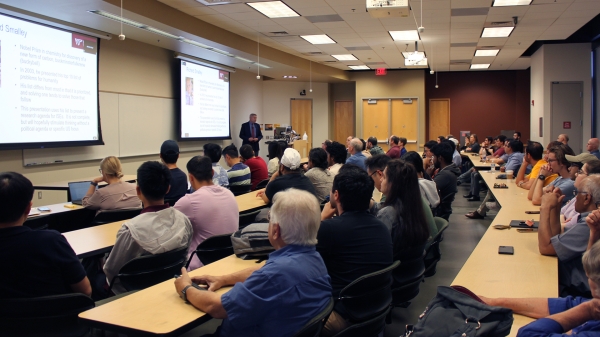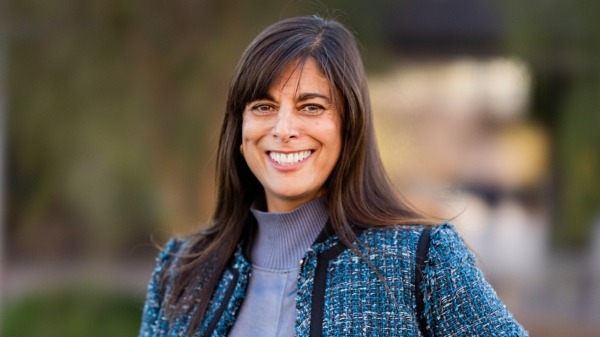What are we not talking about when we talk about climate change?
Internationally recognized author Amitav Ghosh to speak at Tempe Center for the Arts March 21

The international author Amitav Ghosh will be exploring the intersection of political economy and climate change at the Tempe Center for the Arts on March 21st, 2017. Photo credit Emilio Madrid-Kuser.
Over the last several hundred years, human activity has impacted the planet in a such a dramatic and unprecedented way that many have taken to argue for the emergence of a new historical era, the Anthropocene. While this has led to a host of renewed approaches to climate change, this discourse is still largely centered around scientists, engineers, and and economists working in Western universities.
As a result, solutions to climate change are posed in technological terms and the political and cultural contexts of global warming become eclipsed. What other frameworks can be used to address the problem? How has ideology and imperialism affected global warming? What are we not talking about when we are talking about climate change?
At 7 p.m. March 21, internationally acclaimed author Amitav Ghosh will present a talk titled “War, Race and Empire in the Anthropocene: Some Occluded Aspects of Climate Change”, at the Tempe Center for the Arts (700 W Rio Salado Pkwy, Tempe, AZ 85281). A Q&A and book signing will follow the presentation. The event is open to the public and free.
Amitav’s talk is based on his latest book, "The Great Derangement: Climate Change and the Unthinkable," which explores contemporary fiction’s failure to address the realities of climate change.
For more information and to RSVP, visit http://piper-center-amitav-ghosh.eventbrite.com.
About Amitav Ghosh
Amitav Ghosh is an internationally recognized, award-winning author whose work spans three decades and has been translated into more than two dozen languages. Ghosh’s honors include France’s Prix Médicis, India’s Sahitya Akademi and the Ananda Puraskar, the Arthur C. Clarke award, a Puschart Prize, the Crossword Book Prize, and two shortlists for the Man Booker Prize. He has taught at Delhi University, Columbia, and Harvard, and holds honorary doctorates from Queens College and the Sorbonne. Along with Margaret Atwood, he was also a joint winner of a Dan David Award for 2010. His essays have appeared in the New Yorker, the New Republic, and the New York Times.
About the sponsors
Ghosh’s visit is made possible by the Virginia G. Piper Center for Creative Writing at ASU and co-sponsored by the Environmental Humanities Initiative (with support from the Julie Ann Wrigley Global Institute of Sustainability, the Sustainability and Spirituality Initiative, the School for the Future of Innovation in Society, Humanities at ASU, the English Department, the Center for Science and the Imagination, and the Center for Jewish Studies), the School of International Letters & Cultures, the Center for Asian Research, and the Institute for Humanities Research.
More Science and technology

Famed systems engineer inspires ASU to tackle global problems
“Providing great talent with great opportunity can make a great difference.” Such was a key part of the message delivered by G.…

The science behind chronic stress
Stress comes in many shapes and sizes. There’s the everyday stress of preparing for a final exam or being stuck in traffic. And…

ASU planetary scientist to be inducted into the National Academy of Sciences
The National Academy of Sciences is inducting School of Earth and Space Exploration Director Meenakshi Wadhwa into the 2023 class…